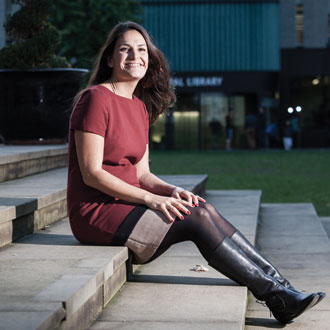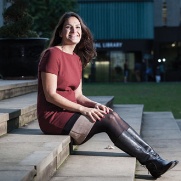Training as a GP


Profile Dr Emma Keeling
Age 33
Role GP trainee (ST4) and honorary clinical fellow
Place of work Training practice in north London and the School of Public Health at Imperial College London
Hours worked per week 40-45
06.00
In an ideal world I would sleep until 7am, but my nine-month-old son usually decides that his day starts at 6am, so mine does too. The next two hours are spent trying to feed and clothe myself and the baby and deliver him to nursery in time for me to get to my practice.
08.00
I travel to work on the Tube where, if I’m lucky enough to get a seat, I catch up on the news and emails on my phone.
I’m a fourth-year trainee. I spend five sessions a week in the practice and five in the academic department, which makes for a busy week, but the variety keeps it interesting. I hope four-year training posts continue, and I would encourage all trainees to undertake them. Doing an extra year has given me the chance to start a portfolio career, learning teaching and leadership skills while consolidating my clinical knowledge. My VTS covers broader topics than the three-year scheme, such as project management and assessing the needs of the local population. I was encouraged to pursue my interest in medical communication by writing, making podcasts and doing a placement at a medical journal, which diversified my skillset and gave me more confidence as a clinician.
08.30
My clinic starts at 9.30, but I like to get through results and letters from secondary care beforehand.
I do three pre-booked clinics and one on-call per week. At my practice, we are lucky to have 12 minutes per patient, which makes clinics manageable and helps GPs run on time.
I undertook my medical degree after working as a paediatric physiotherapist and went into medicine with the intention of staying in that field. It was only during my foundation years that I realised general practice would allow me to work with children and see a huge variety of conditions, as well as exploring other fields such as teaching and research. I enjoy being a GP because working in a practice rather than a hospital makes me feel I have the power to make changes to benefit patients.
Exposure to general practice during medical school and placements in surgeries in foundation programme posts were essential to my decision to become a GP, and also helped me understand the different pressures in the community.
12.00
After seeing patients face to face, I usually have a couple of telephone calls. I also do an average of one visit per week, usually during my on-call session. The split nature of my job means I have to stay on top of admin and communicate any concerns to my clinical colleagues as I am not in the practice every day.
12.30
Lunch is a sociable affair in the practice and gives us all a chance to discuss difficult cases, updates and projects. I enjoy discussing cases, and I am fortunate that all the GPs in my practice and my trainer encourage this.
14.00
I then head to Imperial College for the afternoon. This either involves teaching undergraduate students, preparing for other teaching sessions, or doing research into medical education.
I teach undergraduate students at various stages of their degrees. The teaching is either university based (such as communication skills sessions with actors), or practice based (involving my patients).
17.00
The academic part of my job is fairly predictable and any work I have to finish can usually be done at home in the evening or during the weekend.
And much as I love my job, my favourite part of the day is collecting my son and spending a couple of hours with him before bedtime. Flexibility in my non-clinical work means I get to spend time with him while still being effective in my job.
19.00
Once my son is in bed, my husband makes supper and I usually finish any work left over from earlier in the day. This might be an eportfolio entry, dealing with emails, reading for an academic project or preparing a teaching session.
Tonight, I get a few follow-up emails on a systematic review I’ve recently completed on elearning for the World Health Organisation.
21.00
After dinner, all I want to do is relax on the sofa with a book or a DVD box set – nothing too highbrow by this time in the day. I try to get plenty of sleep, and cross my fingers that I won’t be woken up until tomorrow morning.









